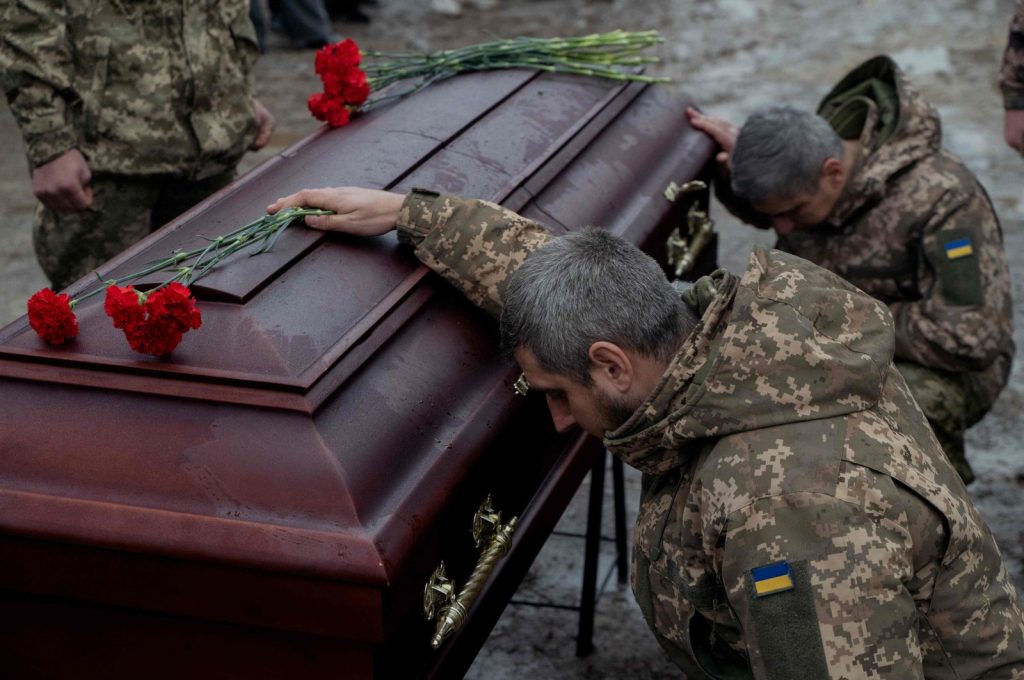In early 2022, when Russia invaded Ukraine, it was nearly impossible to find a building across European capitals that did not in some shape or form have on its façade the blue and yellow colors of the Ukrainian flag. In London, virtually every bookshop had in their front displays books describing how inherently evil and maniacal Russian President Vladimir Putin was and how the invasion of Ukraine was entirely due to his imperial ambitions. It was almost the complete reversal of the 1940s when, as George Orwell wrote in his proposed preface to “Animal Farm,” “what (was) demanded by the prevailing orthodoxy (was) an uncritical admiration of Soviet Russia” and “any serious criticism of the Soviet regime, any disclosure of facts which the Soviet government would prefer to keep hidden, (was) next door to unprintable.” The times had changed, doubtless, and what Orwell called “Russomania” was replaced neatly by “Ukrainomania.”
Why was it, however, that the British government, and Western governments in general, decided to suppress “any serious criticism” of Ukraine and demanded “uncritical admiration” of it? In the 1940s, it was somewhat understandable, as Britain and Soviet Russia had been fighting alongside each other a serious war against a common enemy. Have Britain and Ukraine been fighting alongside each other in a serious war against a common enemy, then? Indeed they have – and this time, Britain acting as part of a greater coalition in the form of NATO.
Referring to the war between Russia and Ukraine as “NATO’s proxy war against Russia” has been common practice among the critics of Western imperialism, and it has been equally common for Western governments and their media apparatus to reject this characterization. Yet, the former British Prime Minister Boris Johnson, who oversaw the initial phase of the war when he was still in office, embraced it when he appeared on The Telegraph’s Ukraine: The Latest program: “Let’s face it: We’re waging a proxy war, but we’re not giving our proxies the ability to do the job, and for years and years now we’ve been allowing them to fight with one hand tied behind their backs, and it has been cruel, and we need now to give them what they need.”
Of course, what Johnson meant by “what they need” were the weapons to strike deep inside Russian territory, thus provoking the Kremlin even further, potentially risking a nuclear war. And why would that risk be necessary? What is this war really all about? In the same interview, Johnson was extremely blunt: “This is all about Russia knowing where the end state is … the Ukrainians, the Russians, the world has to know where we, America, U.K., Europe want this thing to end up.” And this has been absolutely necessary because, as Johnson admitted in a rather bizarre video statement he put out a few months ago, “If Ukraine falls, it will be a catastrophe for the West, it will be the end of Western hegemony.”
Setting aside the obvious question of whether preserving Western hegemony would be worth risking nuclear annihilation, one may wonder how the continuation, and indeed escalation, of the war, contributes to that goal. Perhaps we can refer to Pentagon chief Lloyd Austin’s earlier remarks where he revealed that the ultimate purpose of the U.S. support for Ukraine was “to see Russia weakened.” With Russia weakened, the empire would be left with only one peer competitor, namely China, and eventually reassert its dominance as the global hegemon.
Apart from preserving Western hegemony, of course, the U.S. investment in the war in Ukraine has had something of a business aspect to it as well. This was emphasized by the familiar war hawk Sen. Lindsey Graham: “This war is about money; people don’t talk much about it. But do you know the richest country in all of Europe for rare earth minerals is Ukraine? … Donald Trump is going to do a deal to get our money back, to enrich ourselves with rare earth minerals.” Surely, this comes as no surprise, as there seems to be no risk that the empire would hesitate to take in order to enrich itself with valuable resources. U.S. policy toward oil-rich countries in the Middle East and lithium-rich countries in Latin America attests to this.
What may be a surprise, on the other hand, is how unusually candid many Western leaders have lately been in expressing their real motives. And who can blame them? In an era where the spread of information can no longer be easily contained, the leaders of the “free world” appear to have given up any pretense of “righteousness.” Moral justifications are now reduced to “legacy gestures” which need not be especially convincing or compelling. That they are given at all is considered sufficient, as the procedural task would be completed. What really matters in the end is whether anyone, including the peoples of the “free world,” can seriously challenge the actions taken by the empire and its satrapies in Europe and elsewhere. And that is yet to be seen.


